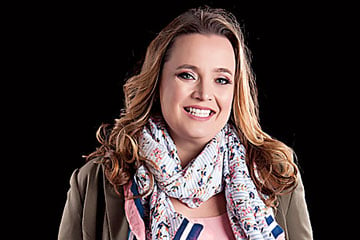
Bencher candidate John Nunziata says he thinks the provincial government may have to intervene in the legal profession’s self-regulation model following the bencher election ending April 30.

Bencher candidate John Nunziata says he thinks the provincial government may have to intervene in the legal profession’s self-regulation model following the bencher election ending April 30.
Nunziata told Law Times that he has heard the proposition of reviewing the Law Society Act discussed among Ontario’s members of provincial Parliament who watch the legal profession. However, Law Times requested interviews with 14 MPPs who have backgrounds as lawyers and none accepted.
Several MPPs, including a spokesperson for Attorney General Caroline Mulroney, repeated the same message.
“The Law Society of Ontario has a mandate to regulate lawyers and paralegals in the public interest. Questions regarding the law society, the bencher election and the regulation of lawyers should be directed to the law society. The attorney general looks forward to working together with the law society in the future on legal issues that affect the people of Ontario,” said an email statement.
Nunziata, a former member of Parliament, would not reveal which MPPs he had spoken to.
Still, Nunziata says he thinks that issues such as low voter turnout, a budget deficit and the divide over the statement of principles requirement could draw the attention of Queen’s Park.
“The fact that the public is not on the side of lawyers — because most people have a negative opinion of lawyers — there are politicians that would say, ‘Well, let’s review what’s going on here.’ For one, conservatives do not believe in running deficits in principle,” says Nunziata.
Rebecca Bromwich, a faculty member at Carleton University in Ottawa who is running for bencher, has studied the topic of self-regulation and its ability to deal with complicated issues such as money laundering.
She concluded, in that research, that government should support self-regulation in the public interest. She says she is not privy to any comments from MPs about the LSO, and said that although Canada’s self-regulation model differs from other countries, the public and political will has typically not supported changing the model.
Bromwich also said there are some positives to self-regulation, and that critics of self-regulation may not consider how a government would undertake the same task. She says that centralising regulation in the government might be at odds with a more conservative political view.
“I think every election is important. I think it would be great if lawyers think it is important,” she says. “Benchers reduced the size of Convocation before this election, so it seems like if there are generally views of reducing the size of the regulatory body, most people seem to be the same page. It’s whether the government should be the one doing it.”
Nunziata says the LSO is an outlier compared to professions that are regulated by an appointed board, rather than a large election, such as the one taking place now.
“It’s important for lawyers to vote, it’s important for the law society to be truly representative of lawyers and paralegals,” he says. “Yes, one of the mandates is to govern in the public interest, but I think there is also an obligation to make sure the needs of lawyers and paralegals are addressed as well.”
The law society’s governance task force is currently considering options to shrink the number of benchers in Convocation.
Susan Tonkin said in an e-mail on behalf of the LSO saying, “The Law Society governs Ontario’s lawyers and paralegals in the public interest. Self-regulation strengthens the independence of the bar and protects the rule of law, which are two critical underpinnings of a democratic society. We look forward to continuing to work with the government and other legal stakeholders as we continue to fulfill our mandate.”
Several examples put forth for a call for comment by the governance task force suggest decreasing the number of elected benchers, which would proportionately give appointed benchers more sway.
At the time of the call for comment, in November 2018, Mulroney said in a letter that the provincial government “believes that it is vital that governing bodies are streamlined and efficient,” adding that her ministry would “fully endorse efforts to reduce the total number of benchers at Convocation to facilitate quicker and more effective decision-making and cost effectiveness.”
Nunziata points out that the provincial government recently cut the size of Toronto’s city council to 25 members from 47.
One skeptic of the LSO’s governance model has announced a run for office: Anita Anand, a law professor at the University of Toronto, said on April 2 that she is seeking the federal Liberal Party nomination in the riding of Oakville, Ont. Anand’s’ research into the topic was recently publicized through a newspaper article titled “Ontario’s law society needs to address problems in self-regulation.”
“Self-regulation opens the possibility of conflicts of interest: lawyers governing themselves may, in making rules for the profession, make decisions that benefit themselves rather than the general public, who may be unable to protect their own interests,” she wrote in the article.
“As a result of these concerns, both Britain and Australia have moved away from self-regulation.”